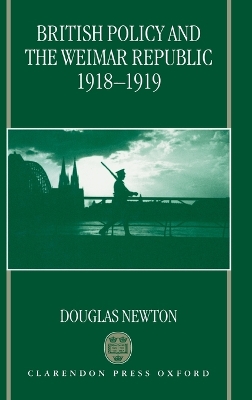This book explores the making of British policy toward Germany in the aftermath of its defeat in the Great War. Douglas Newton shows how British pressures on Germany during the formative months of the new republic were crucial in debilitating the German Revolution and the faltering Weimar democracy.
Using a vast array of private papers, Dr Newton reveals the inner workings of British policy-making: the long-standing reluctance to make any commitment to German democratization; the overwhelmingly hostile response to the socialist-led German Revolution; the shunning and starvation of the new socialist government; the support for the resuscitation of a degree of militarism to deal with 'Bolshevism' inside Germany; and the battle to achieve the only real concession made to Germany - the minor
relaxation of the economic blockade, in March 1919, to allow emergency food relief.
British policy towards the `new Germany' was forged in an atmosphere of great tension. The `moderates', especially strong in the intelligence services, who recommended policies of reconciliation, faced powerful ultra-patriotic and economic pressure groups, supported by the popular press who had long insisted upon a policy of aggrandizement in order to smother anticipated unrest in post-war Britain. Britain's decision-makers vacillated for months. With many misgivings, they eventually opted for
a `harsh' treaty, in spite of an emerging consensus among the intelligence `experts' in favour of a moderate peace to consolidate Germany's transition to democracy. Douglas Newton shows how domestic political priorities triumphed over expert opinion, with ominous consequences for the fate of German
democracy and for the rest of Europe.
- ISBN10 0198203144
- ISBN13 9780198203148
- Publish Date 24 July 1997
- Publish Status Active
- Publish Country GB
- Publisher Oxford University Press
- Imprint Clarendon Press
- Format Hardcover
- Pages 496
- Language English
